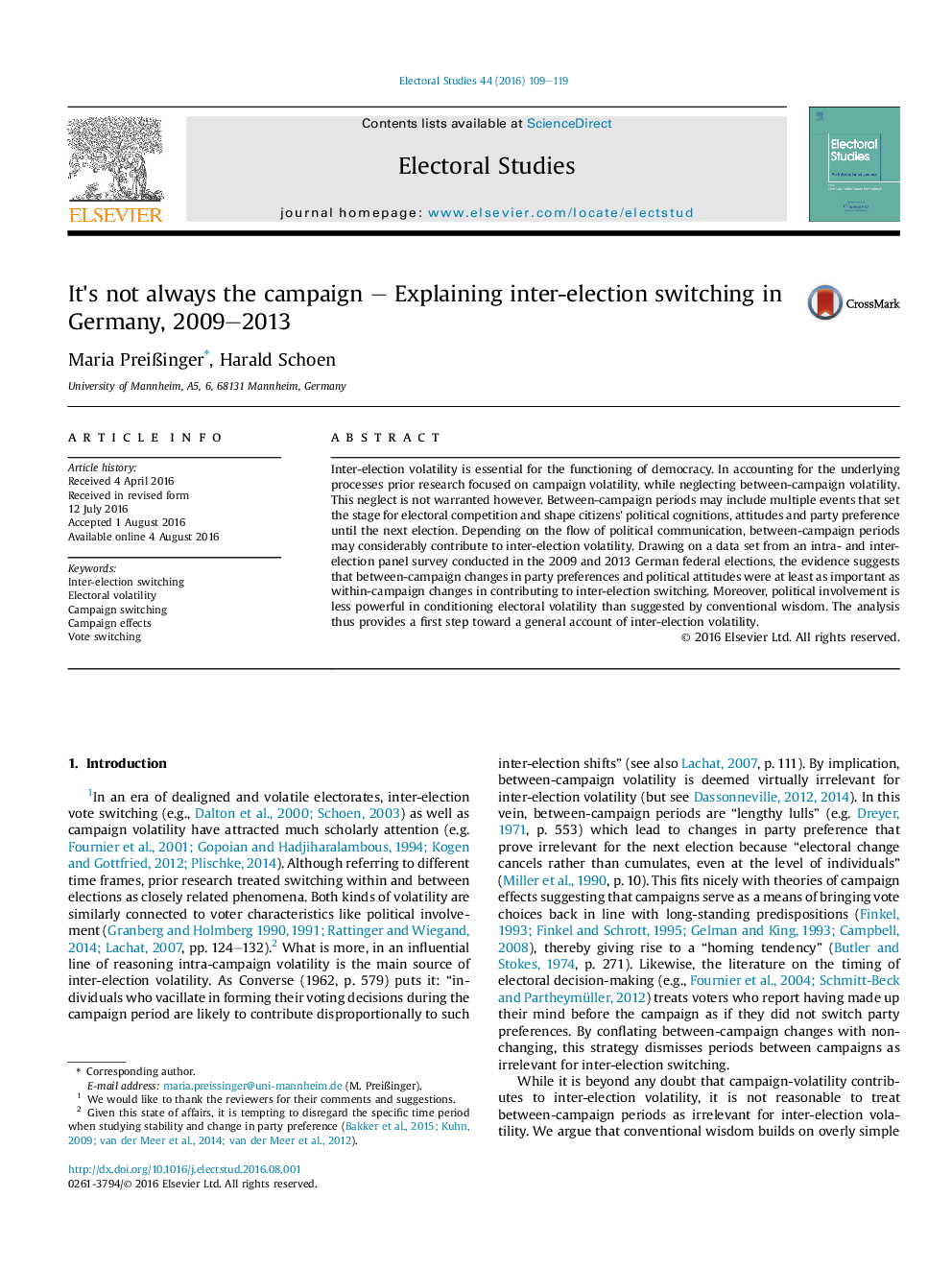| Article ID | Journal | Published Year | Pages | File Type |
|---|---|---|---|---|
| 1051654 | Electoral Studies | 2016 | 11 Pages |
Inter-election volatility is essential for the functioning of democracy. In accounting for the underlying processes prior research focused on campaign volatility, while neglecting between-campaign volatility. This neglect is not warranted however. Between-campaign periods may include multiple events that set the stage for electoral competition and shape citizens' political cognitions, attitudes and party preference until the next election. Depending on the flow of political communication, between-campaign periods may considerably contribute to inter-election volatility. Drawing on a data set from an intra- and inter-election panel survey conducted in the 2009 and 2013 German federal elections, the evidence suggests that between-campaign changes in party preferences and political attitudes were at least as important as within-campaign changes in contributing to inter-election switching. Moreover, political involvement is less powerful in conditioning electoral volatility than suggested by conventional wisdom. The analysis thus provides a first step toward a general account of inter-election volatility.
